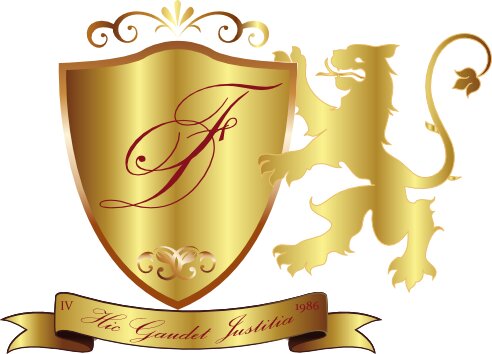Best Probate Lawyers in Turin
Share your needs with us, get contacted by law firms.
Free. Takes 2 min.
List of the best lawyers in Turin, Italy
About Probate Law in Turin, Italy
Probate law in Turin, Italy, governs the process of administering the estate of a deceased person, ensuring their assets are distributed according to the law or their will. The procedure is known as “successione” and involves several steps, including identifying heirs, valuing the estate, paying debts and taxes, and distributing the inheritance. The process is handled under Italian civil law, and specific local procedures must be followed for residents or property owners in Turin. Understanding the basics can help individuals better navigate what can be a complex administrative and legal situation.
Why You May Need a Lawyer
Many situations arise in which legal help in probate is advisable or necessary. If the deceased left a will (testamento), disputes about its validity or interpretation may arise. Intestacy (no will) often complicates identification of heirs and division of property. International aspects, such as foreign assets or heirs living abroad, add complexity. Creditors may come forward with claims. Tax reporting and payments must be handled correctly to avoid penalties. Lastly, challenges from excluded family members, the need to locate missing beneficiaries, or handling businesses and real estate can all necessitate a lawyer’s experience in probate matters.
Local Laws Overview
Probate in Turin operates under the Italian Civil Code, but certain local administrative practices and regional court jurisdictions apply. Key aspects include:
- Types of Succession: Italy recognizes testamentary succession (with a valid will) and intestate succession (without a will). Close family members like spouses and children have guaranteed inheritance rights, known as “legittima.”
- Declaration of Succession: Heirs must file a “dichiarazione di successione” (declaration of succession) with the local Agenzia delle Entrate (Revenue Agency) within 12 months of death. This document lists heirs and assets, including those located in Turin.
- Inheritance Taxes: Duties are calculated based on relationship to the deceased and the value of assets. Reductions and exemptions apply for close relatives and main residences.
- Real Estate Transfer: Properties in Turin require transfer of ownership with registration at the local Land Registry. Notarial acts ("atti notarili") are often needed.
- Probate Court: Disputes are settled by the Tribunale di Torino (Turin Court), which handles issues like will contests or interpretation, contestation of inheritance rights, or removal of executors.
Frequently Asked Questions
What is succession, and how does it work in Turin?
Succession is the legal process of transferring a deceased person’s assets to their heirs. In Turin, this starts with filing a declaration of succession, paying applicable taxes, and, if needed, distributing assets according to the will or legal norms.
Do I have to go to court for probate in Turin?
Not always. If all heirs agree and there are no disputes, court involvement may not be required. However, notarial and administrative procedures must be followed, and court action is necessary in case of conflicts or will contests.
Is a will from abroad valid in Turin?
Foreign wills can be valid, provided they meet Italian law requirements, including translations and possibly an “apostille.” Legal advice is highly recommended to ensure acceptance and smooth administration in Turin.
Who must pay inheritance tax, and how much is it?
All heirs must pay inheritance taxes (“imposta di successione”). Amounts depend on kinship (spouse, children enjoy lower rates), asset value, and applicable deductions. Tax rates and exemptions can change, so up-to-date advice is crucial.
What if the deceased had debts?
Heirs inherit the deceased’s debts along with assets. Generally, you may accept inheritance “with benefit of inventory” (“con beneficio d’inventario”) to protect against personal liability for debts beyond the estate’s value.
I live abroad. Can I handle succession from outside Italy?
Yes, but it involves extra steps, such as appointing a local representative or lawyer in Turin, managing translations, and ensuring foreign documents are recognized in Italy. Professional legal assistance is particularly advised in such cases.
How long does the probate process take in Turin?
Timelines vary. Simple cases may be resolved in a few months, while more complex situations-disputes, international elements, or property issues-can take a year or more.
Can someone challenge a will in Turin?
Yes. Wills can be challenged on grounds such as lack of capacity, improper form, or violation of “legittima” (protected share). Disputes are handled by the Turin court system.
Are stepchildren and unmarried partners entitled to inheritance?
Stepchildren are not automatically heirs unless named in the will. Unmarried partners (unless in a recognized civil union) generally have limited or no inheritance rights, but recent legislative changes may affect certain cases.
What professional help do I need for probate?
A local notary (notaio) is often involved in will authentication and property transfers. A lawyer specializing in succession ensures compliance with complex legal, tax, and procedural requirements. Tax advisors may also be useful.
Additional Resources
- Agenzia delle Entrate - Turin Office: Handles declarations, inheritance taxes, and provides guidance on filing procedures.
- Consiglio Nazionale del Notariato: Offers information on succession and a local notary finder for Turin.
- Tribunale di Torino (Turin Courthouse): Manages disputes and will challenges relating to probate matters.
- Local Bar Association (Ordine degli Avvocati di Torino): For finding qualified probate lawyers in Turin.
- Municipality Offices (Comune di Torino): Offers civil registry access for obtaining death and family certificates needed in probate.
Next Steps
If you need legal assistance in probate matters in Turin, start by gathering all relevant documents such as the will, death certificate, property titles, and bank records. Contact a local lawyer with experience in succession law to discuss your situation and receive guidance tailored to your needs. The lawyer can help coordinate notarial and tax requirements, represent you in any disputes, and ensure compliance with all deadlines and procedures. If you are abroad, appoint a legal representative in Turin to act on your behalf. Consider consulting with a notary for property or will-related matters. Taking prompt and informed action helps avoid delays, disputes, and unexpected costs during the probate process in Turin, Italy.
Lawzana helps you find the best lawyers and law firms in Turin through a curated and pre-screened list of qualified legal professionals. Our platform offers rankings and detailed profiles of attorneys and law firms, allowing you to compare based on practice areas, including Probate, experience, and client feedback.
Each profile includes a description of the firm's areas of practice, client reviews, team members and partners, year of establishment, spoken languages, office locations, contact information, social media presence, and any published articles or resources. Most firms on our platform speak English and are experienced in both local and international legal matters.
Get a quote from top-rated law firms in Turin, Italy — quickly, securely, and without unnecessary hassle.
Disclaimer:
The information provided on this page is for general informational purposes only and does not constitute legal advice. While we strive to ensure the accuracy and relevance of the content, legal information may change over time, and interpretations of the law can vary. You should always consult with a qualified legal professional for advice specific to your situation.
We disclaim all liability for actions taken or not taken based on the content of this page. If you believe any information is incorrect or outdated, please contact us, and we will review and update it where appropriate.









